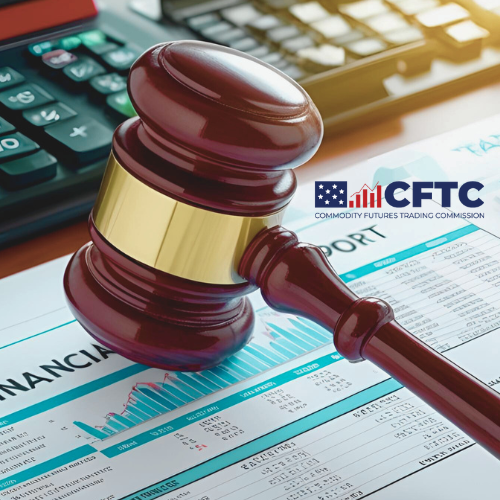In its final enforcement act of 2024 the US Federal energy regulator, FERC, announced (click here) an enforcement action against EWP Renewable Corporation (“EWP”) who were penalised for violating the ISO-New England (ISO-NE) Tariff and FERC regulations for failing to offer, operate and schedule capacity on several days between November 2019 and August 2020. The salient facts of the case as outlined in the 15-page order are summarised as follows:
- The Relevant Period for the case is between November 2019 and August 2020. During this period EWP owned and operated the Hemp Hill biomass generator (Hemp Hill), located in the state of New Hampshire;
- The small Hemp Hill generation plant consists of a single steam turbine and has an expected maximum net output of 17.5 MW, and generates electricity by burning woody biomass such as wood chips, pellets, and sawdust;
- Hemp Hill was operated by Springfield Power LLC (Springfield), a wholly owned subsidiary of EWP, and who were the lead market participant for the plant into the ISO-NE market;
- ISO-NE administers the Forward Capacity Market where eligible resources participate in annual Forward Capacity Auctions (FCA) to provide a specified amount of MW capacity to the market;
- Resources that are successful in the FCA acquire a Capacity Supply Obligation (CSO) and are then bound by the obligations set out in the Tariff in exchange for a monthly capacity payment;
- One such obligation (Section III.13.6.1.1.1(a)) is the requirement to offer the full amount of cleared capacity into the ISO-NE markets unless the obligated unit declares an outage;
- Another such obligation (Section III.13.6.1.1.2) requires that all offers submitted into the ISO-NE market must reflect the unit-specific operating characteristics of each unit known at the time;
- Intermittent resources with a CSO have the additional obligation (Section III.13.6.1.3.1(a)) to submit real-time offers consistent with the characteristics of the unit;
- Over the period 01 June 2019 to 31 May 2021, Springfield cleared approximately 17 MWs of Hemp Hill’s capacity in ISO-NE’s capacity auctions and received approximately USD $112,000 per month during the first delivery year (i.e. 1 June 2019 - 31 May 2020) and USD $92,000 per month during the next delivery year (i.e. 1 June 2020 - 31 May 2021);
- According to the Order, on 14 December 2019 ISO-NE’s control room attempted to contact Hemp Hill to determine its availability for commitment and dispatch in the market;
- Hemp Hill’s offers to the energy market indicated that the generator, which was classified as an intermittent resource, had been bid as unavailable for dispatch in the real-time market since 06 November 2019, but Springfield had not declared an outage in respect of this period;
- The ISO-NE control room repeatedly and unsuccessfully tried to contact Hemp Hill over that weekend to determine why the generator’s offers indicated that the plant was unavailable;
- ISO-NE eventually made contact with staff at Hemp Hill on 17 December 2019 and was told that the plant was available;
- In subsequent communications with ISO-NE’s Internal Market Monitor (IMM), Hemp Hill stated that the plant had not been out of service since 06 November but had appeared unavailable because its staff had failed to update one of the required parameters in the ISO’s Standard Market Design (SMD) application following a prior outage;
- Beginning on 06 November 2019, Hemp Hill had been listed in the SMD with a “Unit Control Mode 2” status, indicating that it was offline but was available for dispatch;
- According to Hemp Hill the generation plant staff had mistakenly thought that this status selection was sufficient to notify the ISO of the unit’s outage status – they claimed that until they were contacted by the IMM, the staff at the plant were not aware that the “Unit Default Parameters” tab in SMD had been set to “Unavailable”;
- Upon becoming aware of this, the plant updated its offers starting on 18 December 2019 with the SMD status changed from “Unavailable” to “Economic”;
- In a second line of investigation, the Order states that between 10 July and 04 August 2020, Springfield did not have an appropriate New Hampshire Department of Labour certificate giving it permission to operate Hemp Hill’s boiler;
- Without such permission, the Hemp Hill plant could not generate power and thus could not fulfil its CSO obligations in the ISO-NE market during this period;
- According to FERC, Springfield failed to update Hemp Hill’s offers during this period to reflect the unit’s unavailability, and instead it offered the unit into the market as economic and available;
- Springfield also failed to submit an outage ticket to ISO-NE for 23 out of the 26 days that Hemp Hill’s boiler was unlicensed up to and including 26 July 2020;
- In a third and final line of investigation, FERC determined that on 26 July 2020, Hemp Hill received a day-ahead award in the ISO’s day-ahead energy market in respect of 27 July 2020;
- Since Hemp Hill had not submitted an outage notification for 27 July, it was required to operate in ISO-NE’s real-time energy market;
- The ISO-NE control room contacted Hemp Hill to confirm if it would be available to operate on 27 July - Hemp Hill staff advised them that the plant would in fact not be available that day;
- The ISO-NE controllers put Hemp Hill on outage status as a result for 26 and 27 July 2020 which Hemp Hill subsequently extended to 29 July;
- In subsequent communication to the IMM, Springfield explained that the gaskets for the boiler doors were being replaced making Hemp Hill unavailable, and that internal process failures were to blame for an outage ticket not being promptly submitted;
- Springfield had failed to update Hemp Hill’s day-ahead and real-time generation supply offers to reflect that the unit was unavailable from 26 July - 29 July 2020 because of the gasket issue;
- The Order notes that EWP fully cooperated with FERC during the Investigation;
- FERC concluded the following regarding EWP/Springfield’s behaviour:
- Violation of Section III.1.10.2(d) of the ISO-NE Tariff for the 26 July 2020 activities (i.e. Hemp Hill was a Pool-Scheduled Resource in ISO-NE and was not available to run - Springfield failed to make its resource available for coordinated operations in violation of Market Rule 1);
- Violation of Sections III.13.6.1.1.2 and III.13.6.1.3.1(a) of the ISO-NE Tariff for the activities on several days between 6 November and 18 December 2019 (i.e. Springfield’s offers on these days indicated that Hemp Hill was simultaneously available and unavailable);
- Violation of Sections III.13.6.1.1.1(a) and III.13.6.1.1.2 of the ISO-NE Tariff on several days between 10 July and 04 August 2020 (i.e. when Hemp Hill’s boiler was unlicensed and it was unable to respond to the 27 July dispatch award);
- Violation of the FERC Market Behaviour Rule on Unit Operation 18 C.F.R. § 35.41(a) for failures 1 – 3 above.
- The following penalties were ordered:
- Civil Penalty: USD $722,000;
- Disgorgement: Unjust profits of USD $259,669;
- EWP to submit an annual compliance monitoring report FERC for one year, with the second year at FERC’s discretion.

